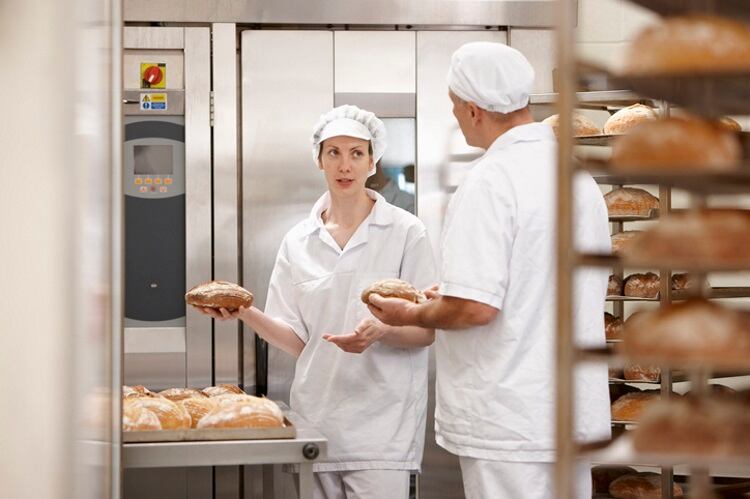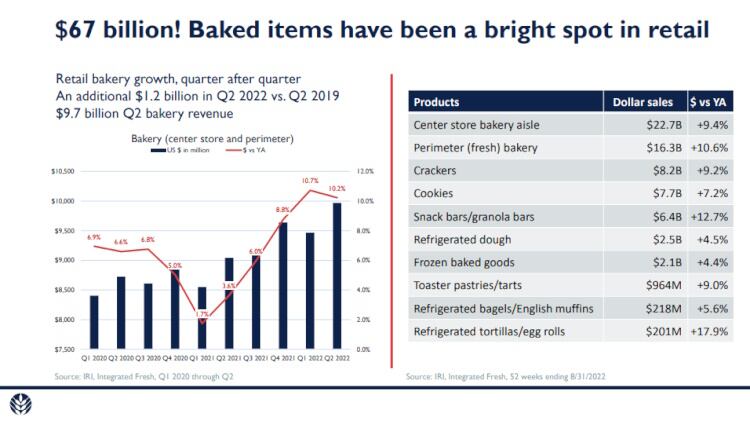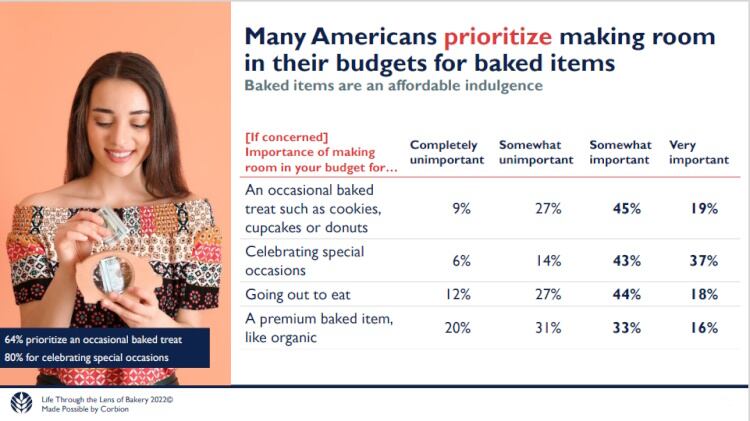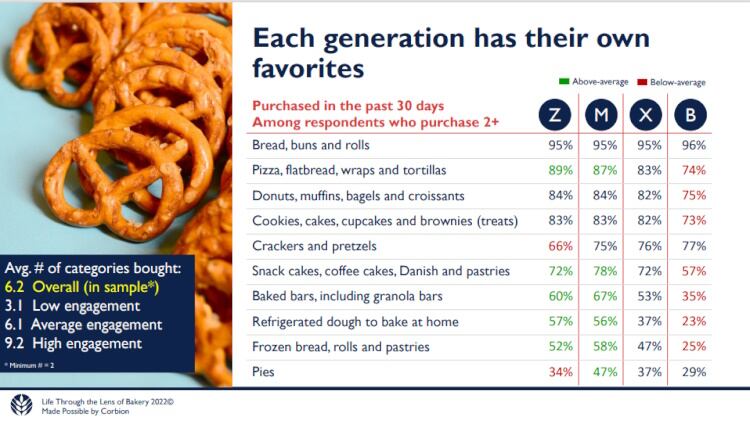Having taken over the hot seat from Robb McKie earlier this year as president and CEO of the American Bakers Association, Dell plans to home in on advocacy to ramp up the ABA’s work to help grow the US baking industry.
Which, according to its members, is in a really good state, considering all the challenges it has had to overcome of late, from COVID to supply chain to labour to ingredients costs, and more.
We chat to Dell to find out more about the man and his vision for the ABA.
ABA recently issued a warning of a looming workforce shortage. Can you explain?

“The top issue that is being raised by our membership - much like many other industries - are problems with retention and finding enough [skilled and unskilled] workers to fill the spots that are needed: for bakeries, manufacturing facilities, equipment and ingredient suppliers.
“So, in an effort to really be on the front foot and tackle this issue [head on], we secured research to see what the future might look like for our industry.”
According to ABA, the commercial baking industry will grapple with a staggering 53,500 unfilled jobs by 2030.
Projected commercial baking shortage in 2030 by region
- Midwest (IL, IN, IA, MI, MN, MO, OH, WV, WI): 13.4k unfilled jobs
- South (AL, AR, DC, FL, GA, KY, LA, MD, MS, NC, SC, TN, VA): 12.9k unfilled jobs
- West (AK, AZ, CA, HI, ID, NV, OR, UT, WA): 10.3k unfilled jobs
- Northeast (CT, DE, ME, MA, NH, NJ, NY, PA, RI, VT): 10.2k unfilled jobs
- Plains (CO, KS, MT, NE, NM, ND, OK, SD, TX, WY): 6.6k unfilled jobs
“The data speaks for itself and is a chasm that threatens the very foundation of our industry and requires immediate and collective action.”
The ongoing workforce shortage in commercial baking is poised to escalate, with employers struggling to occupy roles and an aging workforce headed toward retirement. Demand for skilled workers in commercial baking will be concentrated in the critical operational occupations of production, engineering and equipment maintenance, and shipping and distribution.
By 2030, the ripple effect of these shortages will be felt throughout the supply chain, adversely impacting communities and businesses nationwide.
The total impact - covering direct, indirect, and induced effects - reflects 148k forgone jobs; $9.7bn in sacrificed wages; $36.2bn in missed output; and $3.3bn in waived taxes (direct only).
ABA’s members will be addressing this workforce issue and potential solutions with policymakers during the Bakers Fly-In and Policy Summit to be held on 14 November in Washington.
What is the ABA’s stance on the recent California Food Safety Act, which the NCA alleges decentralises the Food and Drug Administration’s (FDA) authority and creates a massive patchwork of requirements for US food manufacturers?
“We are opposed to banning these [ingredients] in California due to the precedent it could set for creating that patchwork around the country, but also if FDA says a product or an ingredient is safe, it sends a contradictory message.
“We’ve [also] worked with the food industry on this challenge all the way through.”
Earlier this year, ABA released its economic impact report for 2022-2023. Can you run through some of the key findings?
“There was growth in the size of the industry and our impact on jobs [and] on taxes that we paid in the industry. There was also a growth in really driving the economy in America.
“Economic impact [reports like this are] really important … so, we when we go to meet with US Senator or member of Congress or a state legislator, we can tell them how many jobs we're creating in their district, how much in taxes we pay in their district.
“It’s been very helpful in previous roles that I've had with other associations to remind elected officials on how the industry impacts their district. Which is really important because a lot of elected officials come from different backgrounds. They're relying on us to provide that type of information, but it does show growth in the industry, which is really good news.”
What is the state of the industry at the moment?
“We have just completed a member survey, [which] revealed the majority of both bakers and Allied members consider the current state of the baking industry to be better than it was five years ago.
“This is a really good sign for the future, especially considering all the challenges we’ve had with COVID over the past five years and other challenges like supply chain and so forth.
“So, I think we're on the right path, but we’ve [still have] a lot to do and ABA has a big role in helping.”
What milestones has ABA achieved this year?
“The entire team is focused on increasing value for our members and growing our membership, as well advocacy, networking, really ramping up our research [as per] the economic impact data just referenced. We’ve also stepped up with the workforce data and also updating the overall governance, in terms of the board and service on the board and making sure we’re getting as many people involved from our member organisations as we can, not just the top level CEO.
“We’ve [also] been particularly focused on reaching new levels when it comes to the advocacy work.
“My background working in Congress really is advocacy. A lot of times industries can get in the habit of fighting everything the government does and being in a defensive mode. I prefer to be optimistic and ‘glass half full’ and try to work together to come up with solutions.”
You believe ‘baking is cool’. Please explain.

“It presents an opportunity for people to have a career where they can not only do what they enjoy, but they're really making a difference in so many people's lives every day.
“You’re creating something that people are enjoying and hopefully creating smiles, providing nutrients and nourishment around the globe."
What is ABA's route to improving the baking industry’s sustainability practices on a whole?
“When I came to ABA, this is one of the areas I really wanted to focus on [and] what I found is the industry is already doing a lot of good things on the sustainability front that I was unaware of.
“I think a lot of people are unaware of this … and our industry is not getting the credit that it deserves, so we’re going to talking about this more and sharing more of the stories of what our industry is doing.”
With health a consumer priority, does this mean indulgence is going out the window?

“We did some recent research on the different segments in baked goods and saw that there’s a steady upward trend for indulgent baked goods."

“There’s always going to be a segment of the population who will seek a cleaner label, [but] our membership has seen a tremendous amount of growth in this space over the past two years.”

What are the advantages of becoming an ABA member?
“With my government relations background, I think our advocacy work and our regulatory work with the FDA, the USDA and the Labor Department is keeping our members up to date with intelligence of what's happening. Being boots on the ground on the advocacy front, not just in DC, but in state affairs as well.
“I think there’s huge value in our networking - opportunities that we [provide] have great value, getting to know each other and do business together; bringing buyers and sellers together and putting friends together within the industry … and then there’s our NextGenBaker programme.
“We’re working to raise the level of our thought leadership even further than we’ve already done.
“ABA really is on the upswing. I believe our membership of bakers has grown over 50% in the past four years. We have 355 members, which is the highest I think we've had in many, many years.”





